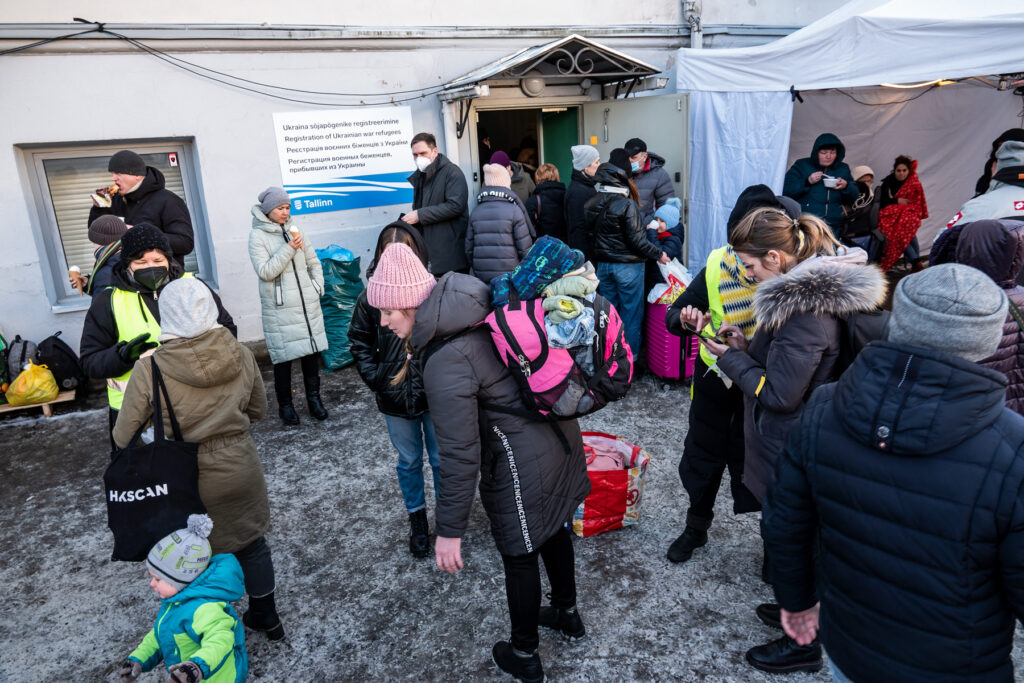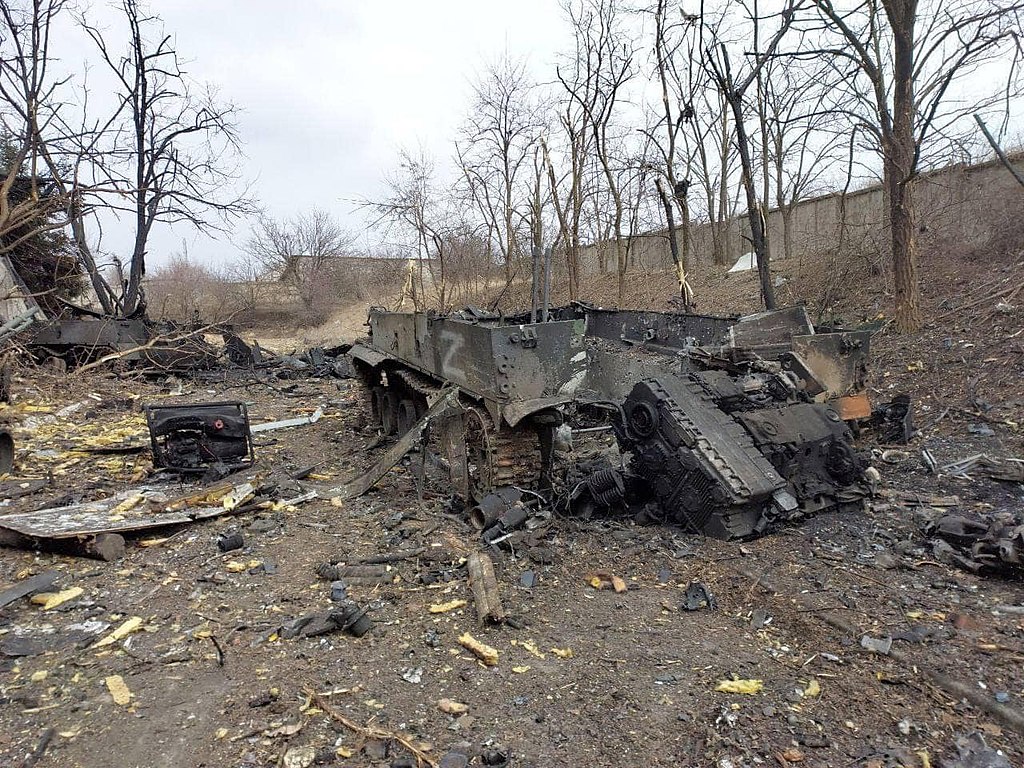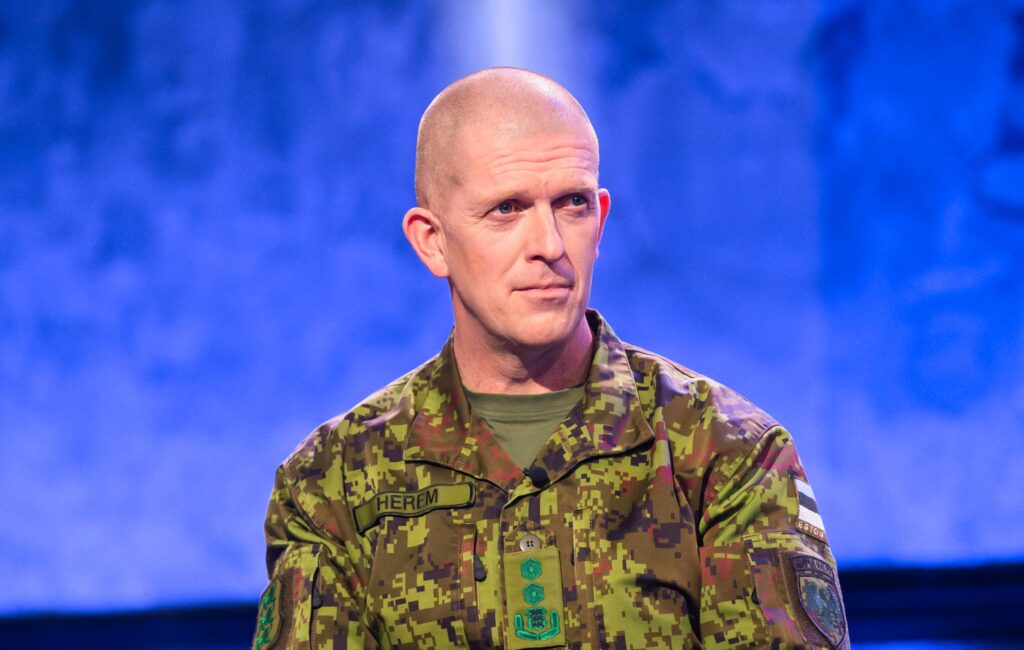Lieutenant General Martin Herem, the Commander of the Estonian Defence Forces, writes that Russia is exploiting Ukrainian war refugees to make Western people worry about their own welfare and turn on the refugees, thus pressuring Ukraine into a deceitful peace.
For years, politicians and security experts have thrown around the expression “hybrid war”, discussing it as the most probable mode of future conflicts. Despite the fact that the expression signals a combination of military and civilian means to gaining one’s military-political goals, many failed to consider both of these aspects together. Rather, it seems that hybrid war was deemed possible only against one country – or against the Baltic states. Likewise, the last time we heard about hybrid war was during the Belarusian migration campaign.
Today, no one is talking about hybrid war. It’s understandable – tanks are burning across Ukraine in scenes reminiscent of the Second World War, while infrastructure and the nation’s citizens, suffering from unyielding bombing, commands our attention. Still, we – the West, including Estonia – are part of the hybrid war battlefield. While we can recognise elements of information and cyber warfare, we seemingly still fail to fully grasp the gravity and scope of the current situation.
A sensitive subject
While Russia is exploiting the element of war refugees, the Russian Federation’s armed forces are wantonly attacking civilian infrastructure. And whether there is resistance from the Ukrainian armed forces or not, makes little difference. The Russian leadership is more interested in the Ukrainians who are leaving their homes and their country, and frankly, Russia doesn’t care where the Ukrainians are going.
That’s because refugees are a sensitive subject in Europe. In the early days of the current crisis, there was an outpouring of support for Ukrainian citizens and war refugees across Europe. As the crisis continues, however, a larger aim of Putin’s is starting to take shape – citizens of various European countries are beginning to fear for their own welfare, posing questions such as, “Do we have to accept so many refugees? Why aren’t they going elsewhere? The other countries have more space and opportunities! Why isn’t the government taking care of its own people?”
On one level, this is human nature and my goal isn’t to convince anyone to accept war refugees or send them elsewhere. We need to realise that the Ukrainian war refugees aren’t coming here because they were invited by the Estonian government, or because aid organisations want them to, or even because the Ukrainians themselves want to. Had it not been for Putin’s war, we’d see but a handful of Ukrainians immigrating to Estonia for employment, school or family – not as refugees.

The Ukrainian refugees are both victims and tools of a difficult operation. Sooner or later they will affect us. First, there will be heated debate amongst our society. Later, we will be disappointed in, and possibly even resent other countries.
We know who the enemy is
And at one point we might find ourselves, due to our fears and disagreements, ready to convey Ukraine to ask for peace, regardless of conditions. This, despite the fact that some areas have already fallen to Russia and will indefinitely be under the control of its armed forces.
At the end of the day, however, there will be friction amongst us, as societies and countries; Ukraine will have lost, due to the deceitful peace, some of its territory; Ukrainian war refugees will feel abandoned and the only winner will be… Russia. And this despite the images we have seen of burning and abandoned tanks, demoralised troops and occasional opinions of our experts that the brave Ukrainians are effectively spoiling Putin’s plan. And most likely they did. And most likely, Putin is fuming about losses for the Russian Federation. But at the end, hasn’t this already happened somewhere?

We’re currently in a war that seems to defy psychological readiness. But we know who the enemy is – and we have resources to fight back. In a war, we all lose something. There are no two ways about it. The Ukrainians lose lives, we lose welfare. But we should now concentrate on the enemy, not our own woes and fears because we can’t lose the war.
Putin’s Russia is our problem, not the Ukrainian war refugee.
The opinions in this article are those of the author. Please note that Martin Herem originally published this opinion on his Facebook page in Estonian.

